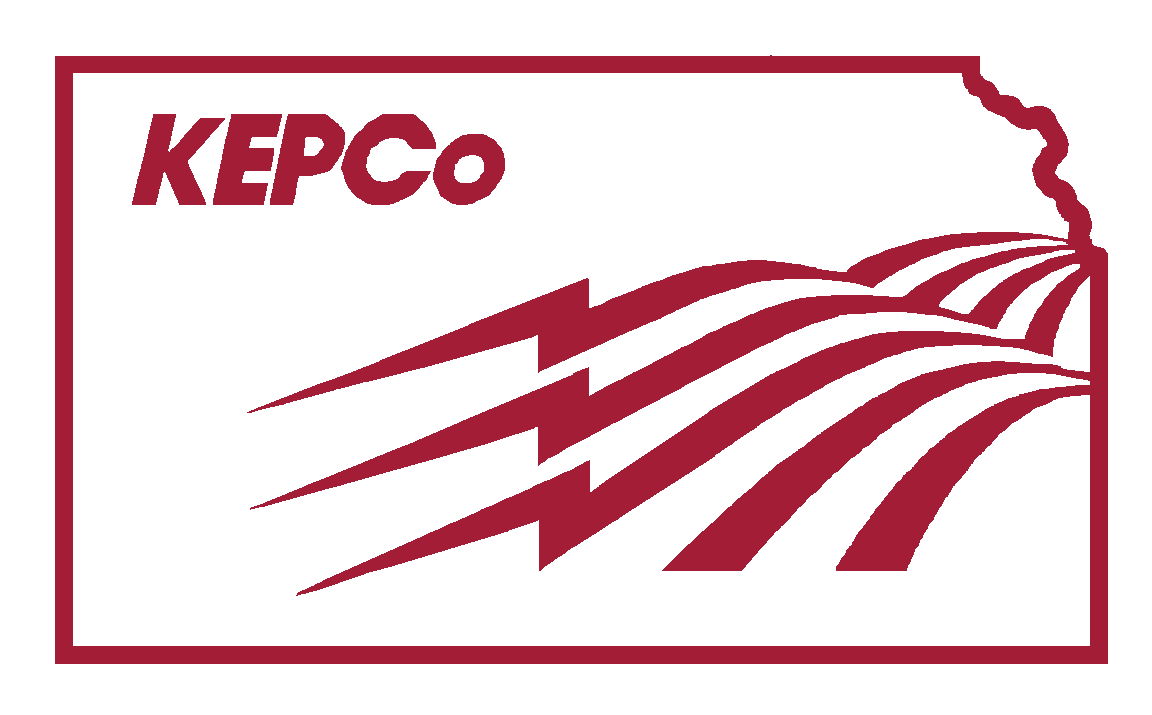A Moment with the CEO
BY SUZANNE LANE

New Year Brings New Initiatives
As I am sure everyone can attest, it is wonderful to have 2020 behind us, with the new year in full swing! So what are this G&T cooperative team’s main focus items for 2021?
In addition to continuing the many tasks and efforts necessary to fulfill our core functions, goals, and strategic plan, our priorities for this year include, but are not limited to:
- Continuing our high-level productivity and service to our Members through the balance of the pandemic, keeping safety and health a top priority;
- Optimizing market-related savings opportunities related to our new power supply and energy management agreements;
- Finalizing the process at the Federal Energy Regulatory Commission regarding our largest power supply agreement, advocating for appropriate, approved cost recovery practices, which would result in lower rates for our Members;
- Remaining engaged in key dockets at the Kansas Corporation Commission, learning as much as possible to formulate positions and prepare strategies to mitigate cost impacts going forward;
- Continuing our efforts associated with a transmission project in Kansas, which will enhance grid reliability in the state and region for years to come;
- Supporting and assisting with our Members’ new solar generation projects;
- Completing our 5-year resource planning study;
- Supporting our jointly-owned Wolf Creek Nuclear Generating Station towards a successful, on-budget, timely, and safe refueling outage; and
- Continuing to work with the Southwest Power Pool, Inc. and our largest power suppliers to determine the full cost impacts and operational areas for improvement associated with the extreme weather event in February.
None of these important endeavors could be possible without the hard work, dedication, and diligence of the KEPCo team and the endless, unwavering support of our Board of Trustees. We look forward to 2021 being a year of accomplishments, growth, learning, and service on behalf of and for our Members!
Generating Safety
‘Tis The Season
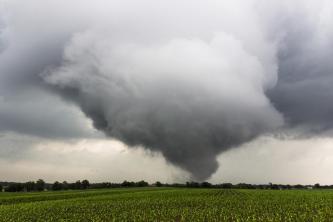
Severe weather season is upon us once again. Although it seems like dealing with severe weather and tornadoes is “old hat” if you have lived in Kansas for a while, it is always good to have a refresher course regarding what to do in case Mother Nature strikes.
- Dark, greenish sky
- Large hail
- A large, dark, low-lying cloud (particularly if rotating)
- A load roar, similar to the sound of a train
Know the difference between a tornado watch and a tornado warning:
- Tornado watch – conditions are right for tornadoes and tornadoes are possible. Remain alert and tune into NOAA Weather Radio, commercial radio, or a local television station in case a warning is issued.
- Tornado warning – a tornado has been spotted by a storm spotter or is indicated by radar and is active within the warning area. Take shelter immediately.
What to do during a tornado:
If you are in a structure, such as a house or building, head to your pre-designated shelter area. (If you do not have a pre-designated shelter area, now is the time to figure it out!) This could be a basement, storm shelter, or the lowest building level. If you are home and do not have a basement, go to the most interior room on the ground floor. Often a bathroom or laundry room makes a suitable shelter area because the waterpipes reenforce the walls, providing for a sturdier structure. Stay away from corners, windows, doors, and exterior walls. Put as many walls as possible between you and the outside. Get down on your knees and use your hands to protect your head and neck. Do not open any windows.
If you are in a vehicle, and you can drive away from the tornado safely, do so. If you do not have time or are not sure the direction the tornado is moving, get out of the vehicle. Head to the lowest floor of a nearby building or other shelter. If there is no shelter available, lie flat in a nearby ditch or depression and cover your head and neck with your hands. Do not seek shelter under an overpass or bridge; you are safer in a low, flat location. Also beware of flying debris. Tornadoes can pick up large objects and turn them into missiles. Flying debris causes the most tornado deaths each year.
If you are in a mobile home or trailer, get out immediately and go the lowest floor of a nearby building or other shelter. Mobile homes provide little to no protection from a tornado.
Remember, tornadoes can occur with little or no warning. Taking precautions in advance of the storms, such as developing an emergency plan, learning the warning signs, and monitoring tornado watches and warnings can help you stay safe if a tornado occurs in your area.
Mid-February Polar Vortex Grips Central U.S.
A mid-February Polar Vortex, named Winter Storm Uri, caused unprecedented, historically low temperatures, along with snow and ice, over the central U.S. and parts of Canada and Mexico. This extreme weather event stressed electric generating capacity, natural gas supplies, and the ability of the transmission grid to move power from state to state and region to region.
Energy Emergency
The Southwest Power Pool, Inc. (SPP), the entity that oversees the bulk electric system in the 14-state region affected by Winter Storm Uri, quickly declared emergency alerts, which forced many electric cooperatives into outages due to the inability of electric generation supply to meet demand. Generation by natural gas presented a number of issues during this time. Depletion of natural gas supply due to increased use by residential, commercial, and industrial users created high prices in a very short timeframe. Additionally, some natural gas suppliers were not equipped to handle the extreme cold, which left the supply frozen in the ground. Further, the inability of renewable energy (such as wind generation) to produce at this time due to the extreme cold also placed stress on natural gas generation units, which had to make up for the shortage of generation capacity. Natural gas generation is typically used to back-up renewable generation.
SPP’s Role
The SPP does not generate electricity or own power lines or substations but, rather, is tasked with operating the power grid in a safe and reliable manner. The SPP declared and broadcasted that they had enacted an Energy Emergency Level 1 that began Sunday evening, February 14, to conserve energy. During brief periods on February 15 and 16, SPP elevated the Energy Emergency to a Level 3, which required prompt response. These Energy Emergency declarations resulting from record cold temperatures forced transmission-owning electric utilities within the SPP region to take extreme steps to prevent catastrophic damage to the power grid. These steps included mandating load shedding measures by KEPCo’s large power suppliers, which affected several of KEPCo’s Members who were unable to supply power to their own members for short periods of time on February 15 and 16. While never ideal or desired, implementing relatively short, isolated, planned curtailments helped prevent the likelihood of long-term, widespread, catastrophic outages. The SPP has never in its 80+ year existence had to implement power curtailments and has never dealt with this extreme type of phenomenon.
KEPCo’s Response
KEPCo staff was heavily involved in dealing with the impact of this unexpected and unprecedented weather event on our Members. In particular, we extend our gratitude to Mark Barbee and Shawn Geil for their round-the-clock monitoring of the situation and for their continuous communications with SPP, our power suppliers, and our Members. Additionally, KEPCo’s wholly-owned Sharpe station was instrumental during this extreme weather event, so we also want to recognize the KEPCo staff who ensured that our Sharpe station was fully operational. Sincere thanks to Mark Barbee, Jerad Crotinger, Chris Davidson, Terry Deutscher, Carol Gardner, Shawn Geil, Rick Johnson, Matt Ottman, and Luke Zahner for their tireless and unstinting assistance. Both our efforts and our Members’ efforts to run their generators and conserve energy helped mitigate the impacts of the weather event, preventing much more significant and longer-term issues. Fuel gelling, operational challenges, and extreme temperatures did not hinder our staff’s dedication to keeping our units up and running. Kudos to all for your above and beyond service!
When Will the Total Cost Impacts of the Extreme Weather Event Be Known?
SPP handles many power transactions in any given timeframe. It would usually take the SPP up to 120 days to review the transactions and determine the final costs associated with the Polar Vortex event; however, because of the complexity of the issues related to the event (volume of transactions, supply issues, market conditions, to name a few), SPP requested and received an extension from the Federal Energy Regulatory Commission (FERC) by which to fully resolve the cost impacts. At this time, the final SPP review, settlement, and billing will not occur until approximately September 2021. And even then, with state and federal regulatory agencies and lawmakers involved, the process could take a while to determine final, attributable costs.
Many regulatory agencies have opened investigations into the Polar Vortex event. These entities include FERC, the North American Electric Reliability Corporation (NERC), Congress, SPP, the Kansas Corporation Commission (KCC), and the Kansas Legislature, which has not only been inquiring, but has already passed or is considering expedited legislation to assist utilities and customers across the State with the cost impacts of the weather event.
How KEPCo is Handling the Extraordinary Cost Impacts
KEPCo’s commitment to our Members’ best interest is always at the forefront of our decisions and operations. Although the total cost impact is not known, and likely won’t be known for a number of months, KEPCo’s energy-related costs associated with the event to date have been significant – more than double what was budgeted for February. However, the good news is that we believe we were more protected from market conditions than some other utilities and, importantly, because of our cash position and access to low cost financing, KEPCo is able to assist Members by spreading the costs of the extreme weather event over a period of months. In fact, at our monthly board meeting on March 18, 2021, the KEPCo Board of Trustees (Board) elected to defer and amortize the costs attributable to the weather event over a 24-month period.
Specifically, for the energy-related costs attributable to the February 2021 extreme weather event, the Board approved a 24-month amortization period. This not only includes the costs we have already deferred per capping KEPCo’s energy cost adjustment (ECA) at $0.033 per kWh for February 2021 billing purposes, but also includes costs we still anticipate in the coming months as everything is finalized at the Southwest Power Pool, Inc. (SPP). This decision helps mitigate the cost impacts to the nearly 300,000 rural Kansans our Members serve. It also demonstrates the value of nearly all seven of the cooperative principles. Being self-governed, focused on community, economically responsible, and cooperating among our cooperative Members to do the best we can to provide safe, economical, reliable power are valuable benefits of the cooperative model and never more so than now!
KEPCo’s Generation Assets Perform During Energy Crisis
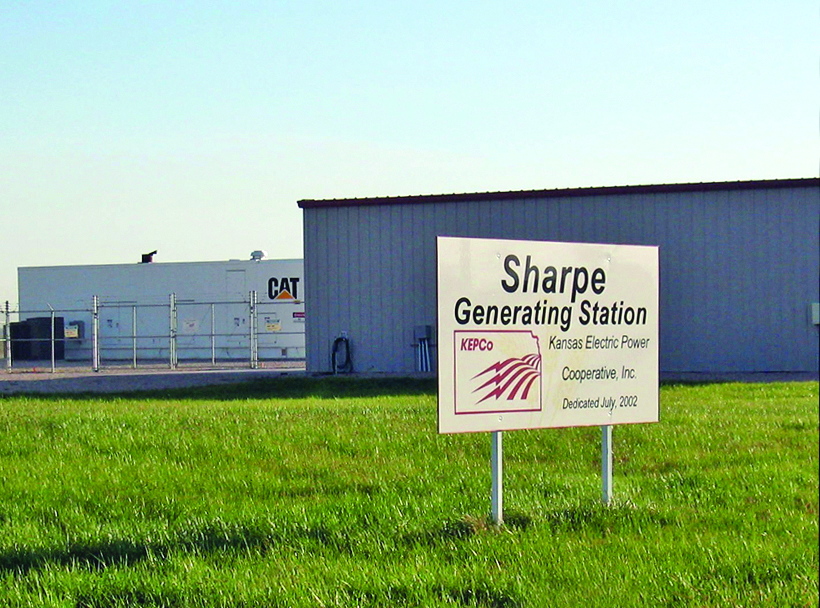
During the February 2021 extreme weather event, known as Winter Storm Uri, the Southwest Power Pool, Inc. (SPP) called upon the Sharpe Generating Station to provide much needed energy and capacity. In fact, Sharpe was committed in the SPP Day-Ahead market almost continuously from February 12-20. And during this same period, the Wolf Creek Nuclear Generating Station and Iatan 2 Generating Station operated flawlessly, with no operational issues. As a highlight, an editorial appeared in the February 19 issue of the Topeka Capital-Journal lauding the performance of Wolf Creek during the crisis. “During the most critical time of an unprecedented storm, KEPCo’s owned generation assets performed without issue and were crucial for the stability of the grid in Kansas,” said Suzanne Lane, KEPCo EVP & CEO.
Kansas Legislative Update
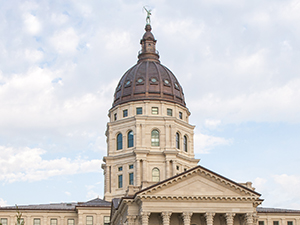
The 2021 legislative session has been progressing at a rapid pace. The 2020 session was dramatically shortened due to the COVID-19 virus. Many bills from last year were brought back this year, as well as a plethora of new bills for 2021, making for a fast-moving session. “The 2021 session has been busy to say the least. KEPCo has worked together with the KEC, Sunflower, Midwest Energy, and other utility companies to ensure our interests are brought forth, recognized, and understood by the legislature,” said Susan Cunningham, Senior Vice President, Regulatory and Government Affairs, and General Counsel.
SB 245 – Introduced by Evergy in the Senate Financial Institutions and Insurance Committee, this bill is a complex financing instrument that would allow a utility the option of securitizing the retirement or abandonment of generation assets and other debt obligations through third-party issued ratepayer-backed bonds.
KEPCo initially provided oral, neutral testimony, stating that the five-day period between the bill’s release and hearing date was not sufficient for one of Evergy’s largest wholesale customers and generation co-owners to fully analyze the bill.
On the same day as the hearing, on the floor of the Senate, the bill was referred to the Senate Ways and Means Committee, which is a committee that is exempt from the turnaround deadline. This procedural move allows a bill to not have to meet the turnaround deadline.
In the meantime, Winter Storm Uri hit a large section of the central U.S., including Kansas and surrounding states, and parts of Canada and Mexico. As a result of this extreme weather event, Kansas Gas Service (KGS) requested a meeting with the Senate president, the chairman of the Senate Financial Institutions and Insurance Committee, and several utility representatives to request an amendment to SB 245 that would allow utilities to securitize debt resulting from financial impacts of extraordinary weather events, such as Winter Storm Uri.
Another hearing was held on March 17 to discuss the KGS amendment and any concerns with the underlying bill. KEPCo testified as a neutral conferee, focusing on three areas that KEPCo believes required further scrutiny, including the unfettered use of the bond proceeds, concern with allowing already retired assets to be securitized, and a proposal for an effective date four years out.
The chairman stated he was receiving pressure from Senate leadership to advance a “clean” bill and, further, the bill would be amended into HB 2072 in order to expedite the process since a “gut and go” bill does not need to be debated again by the House.
The bill was worked on March 18, with the KGS amendment included, as well as an amendment from a consortium of Kansas industrial customers (Kansas Industrial Consumers Group or KIC), and was passed unanimously out of Senate Financial Institutions and Insurance.
SB 24 – This bill, known as the Kansas Energy Choice Act, was introduced by KGS and would not allow a municipality to exclude natural gas as a fuel choice for consumers, unless the municipality itself was the end consumer. The bill was passed favorably by the Senate Utilities Committee and the Senate as a whole. The bill was heard in the House Energy, Utilities and Telecommunications Committee and was amended to include propane. The bill advanced out of this committee as amended.
SB 80 & HB 2180 – These two bills are companion bills that would require changes in transmission costs to be determined in a general rate proceeding rather than the current process related to transmission delivery charges. This bill was brought forth by KIC and Kansans for Lower Energy Rates (KLER). Neither bills advanced out of their respective committees.
SB 81 & HB 2181 – These two bills are companion bills that would require the Kansas Corporation Commission (KCC) to perform an annual review of regional electric rates in Kansas and nine other states, including the four states that border Kansas. The report would be provided to the legislature each year. The bill did not advance out of House Energy, Utilities and Telecommunications. A meeting was requested by the Chairman of the Senate Utilities Committee to determine the parameters of the proposed annual report. KIC, the Kansas Chamber of Commerce, the KCC, Evergy, KEPCo, and the Kansas Municipal Utilities attended the meeting. It was agreed that the KCC will provide an annual report that lists the average residential, commercial, and industrial rates for each of the investor-owned utilities within the nine states. The KCC will also provide the state average for municipals and cooperatives within the nine states. This agreement is not in statute but, rather, is a voluntary agreement by the KCC.
SB 133 & HB 2145 – These two bills are companion bills pertaining to electric vehicle charging stations. In this bill, the sale of electricity from an electric vehicle charger would not be regulated by the KCC and the entity selling the electricity would not be deemed a public utility. HB 2145 passed favorably out of House Energy, Utilities and Telecommunications and the House as a whole, but SB 133 did not advance out of Senate Utilities. The Senate Utilities Committee took up HB 2145 after turnaround and, after amendments pertaining to road tax and out of state drivers were attempted and defeated, HB 2145 passed favorably out of Senate Utilities.
SB 172 – This bill criminalizes trespassing on and damage to a critical infrastructure facility. The bill was amended then forwarded favorably by the Senate Utilities Committee. One of the amendments, supported by the cooperatives, ensures that nothing in the bill regarding increased criminal penalties interferes with the owner/operator of critical infrastructure from pursuing other legal remedies. The bill passed favorably out of the Senate Utilities Committee and was passed by the Senate favorably. The bill was referred to the House Judiciary Committee and received a hearing. As of the time of this publication, the bill has not been worked by this committee.
SB 279 – This bill establishes the Wind Generation Permit and Property Protection Act and sets out a number of criteria that must be met before wind generation may be developed. The bill would impose setbacks from certain property, restrict approval of facilities by boards of county commissioners, terminate property easements and conveyances, restrict noise per turbine, as well as several other restrictions. This is a controversial bill brought forth by the chairman of the Senate Utilities Committee and received a two-day hearing. As of the time of this publication, the bill has not been worked by this committee.
HB 2367 – This bill would extend the KCC’s safety regulations under the Wire Stringing Act to certain electric lines (often referred to as generation tie lines) that are not owned or operated by a public utility. The bill would ensure that generation tie lines are subject to the same safety requirements as electric lines operated by public utilities. The bill passed out of House Energy, Utilities and Telecommunications and the House as a whole. The Senate Utilities Committee passed the bill favorably and placed the bill on the consent calendar.
HB 2321 – Known as the urban transmission bill, this bill pertains to notice requirements of proposed transmission lines between 69 kV and 230 kV within the limits of a city. As amended, the bill would require a utility to provide notice of the construction of the proposed transmission line and hold an open house to discuss the project. All landowners and tenants of record whose land or interest is proposed to be acquired or is located within 660 feet of the centerline of the easement shall be notified. A KCC commissioner and staff member must attend the open house. Currently, the bill pertains only to the City of Wichita (that is, cities with a population of 300,000 or greater). The bill passed favorably out of the House Energy, Utilities and Telecommunications Committee and was passed favorably by the House as a whole. The bill also passed out of Senate Utilities favorably.
HB 2381 – This bill would establish the state energy planning task force to develop a comprehensive state energy plan that provides strategies to assess current and future energy technologies and needs; enhance energy efficiency and plan for electric vehicle infrastructure as part of a comprehensive strategy for vehicle fueling infrastructure that includes biofuels, alternative fuels and petroleum fuels; stimulate economic development; expand economic opportunity and workforce development; stimulate development of new and emerging energy technologies and systems; and promote diversity of the resources that supply energy to and within Kansas, while promoting affordability for consumers and protecting the environment and the state’s natural resources.
The task force will be comprised of 17 voting members and eight non-voting members. A representative of Kansas Electric Cooperatives, Inc. (KEC) is among the voting members to represent cooperative interests.
The task force would be required to make recommendations on the initiation, design, implementation, and evaluation of the state energy plan, taking into consideration: a comprehensive perspective of the state’s energy profile, including all energy resources and end-use sectors; future energy supply and demand and the potential impacts of supply shifts, geopolitical risks and uncertainties, technological changes, and other factors that affect short- and long-term energy needs; a framework that allows leaders across the state to make informed decisions based on a defined and structured plan; a plan of action with clear recommendations and achievable goals; and proposed future activities, actions, or legislation that may be necessary to ensure continued viability and long-term implementation of the state energy plan, including whether such plan should be implemented and administered by any certain state agency or division.
The bill passed favorably out of House Energy, Utilities and Telecommunications but was not taken up by the House as a whole. Procedurally, the bill is still alive for consideration during next year’s legislative session.
HB 2317 – Francis Energy proposed a bill that would allow tax credits for expenditures associated with placing a qualified alternative-fuel fueling station into service. Francis Energy has completed this process in Oklahoma and is doing business in fifteen other states. Their proposal is unique in that Francis Energy focuses on rural communities to accomplish a contiguous buildout in the state. This bill was heard last year and did not advance due to the shortened session. Reintroduced again this year, the bill was heard in the House Taxation Committee. As of this publication, the bill has not been worked by this committee.
HB 2429 – This bill would establish the city utility low-interest loan program, allowing cities to apply to the state treasurer for loans from state unencumbered funds for extraordinary electric or natural gas costs incurred during the extreme winter weather event of February 2021. The loans in the program shall not exceed $100 million in total. Given the urgency of the bill’s subject matter, committee rules were suspended, and the bill was worked the same day as the hearing. SB 88 was used as the “gut and go” amendment vehicle and House Substitute for SB 88 was passed favorably out of House Financial Institutions and Rural Development. The bill passed both the House and Senate as a whole and was signed into law by Governor Kelly.
Get to Know KEPCo Employees
TONI WHEELER joined the KEPCo family on February 10th of this year in the position of administrative assistant. Toni previously worked sixteen years for the law firm of Coffman, DeFries, and Nothern as a receptionist and billing assistant.
Toni lives in Holton with her husband, John. She attended Jefferson County North High School.
In her spare time, Toni enjoys “country cruising” with her husband, working outdoors, and watching NASCAR. Welcome aboard, Toni!

COLEEN WELLS, Senior Vice President and Chief Financial Officer, has been with KEPCo for 20 years. Coleen is from Hanover and attended Kansas State University, earning a Bachelor of Science in Accounting, and is also a Certified Public Accountant.
Coleen is married to Bob and they have four adult children and two grandchildren.
When not at work, Coleen likes to root on the ‘Cats, enjoys physical fitness activities, and spoiling her grandchildren.

KEPCo Adds Feature to Safety Program
Earlier this year, the KEPCo Safety Committee completed a lengthy review and revision of KEPCo’s Employee Safety Manual. To further augment our safety program, KEPCo has contracted with Vivid Learning Systems to facilitate on-going safety education via online media. Vivid is an online safety training company offering a library of courses that deliver an effective, memorable training experience, as well as training software designed for smart simplicity to help protect the workforce in a manner that goes beyond regulatory requirements. The video courses place an emphasis on reducing risk, keeping workers in the workplace, and supporting training efficiency.
The KEPCo Safety Committee has selected 12 videos for administrative staff and 15 videos for our meter/SCADA technicians and engineers to watch throughout the year. The first videos were rolled out in March. “I am proud of the attention and effort that has been given to emphasizing safety and the additional resources KEPCo now has to educate employees and to help keep them safe. KEPCo has not had a lost-time accident for over 11 years and the new features of our safety program will further enhance our ability to keep employees out of harm’s way,” said Suzanne Lane, KEPCo EVP/CEO.
Susan Cunningham Selected to Leadership Kansas
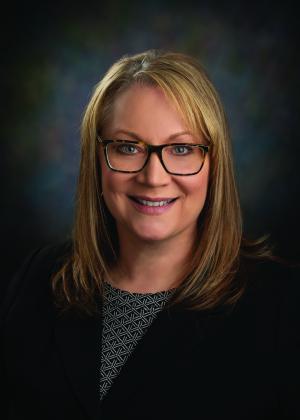
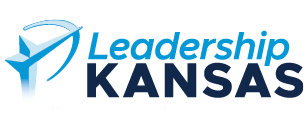
As one of the oldest and most prestigious statewide leadership programs in the country, Leadership Kansas has a long history of fostering greater awareness and understanding of statewide economic, business, and political issues. “The program helps develop our state leaders to make Kansas a stronger and more vibrant business engine,” said Alan Cobb, President and CEO of the Kansas Chamber of Commerce. Graduates of the program gain enhanced communication skills, creativity, exposure to future business trends, and the ability to expand their thought process. Graduates also gain an inclusive network of colleagues and resources, a broad understanding of state and business issues, and enhanced leadership skills. “I am excited to have been chosen for the Leadership Kansas class of 2021. This program will provide a wonderful opportunity to learn about business issues facing Kansas and to become better equipped to address these issues, particularly those that relate to the energy sector,” said Susan Cunningham.
